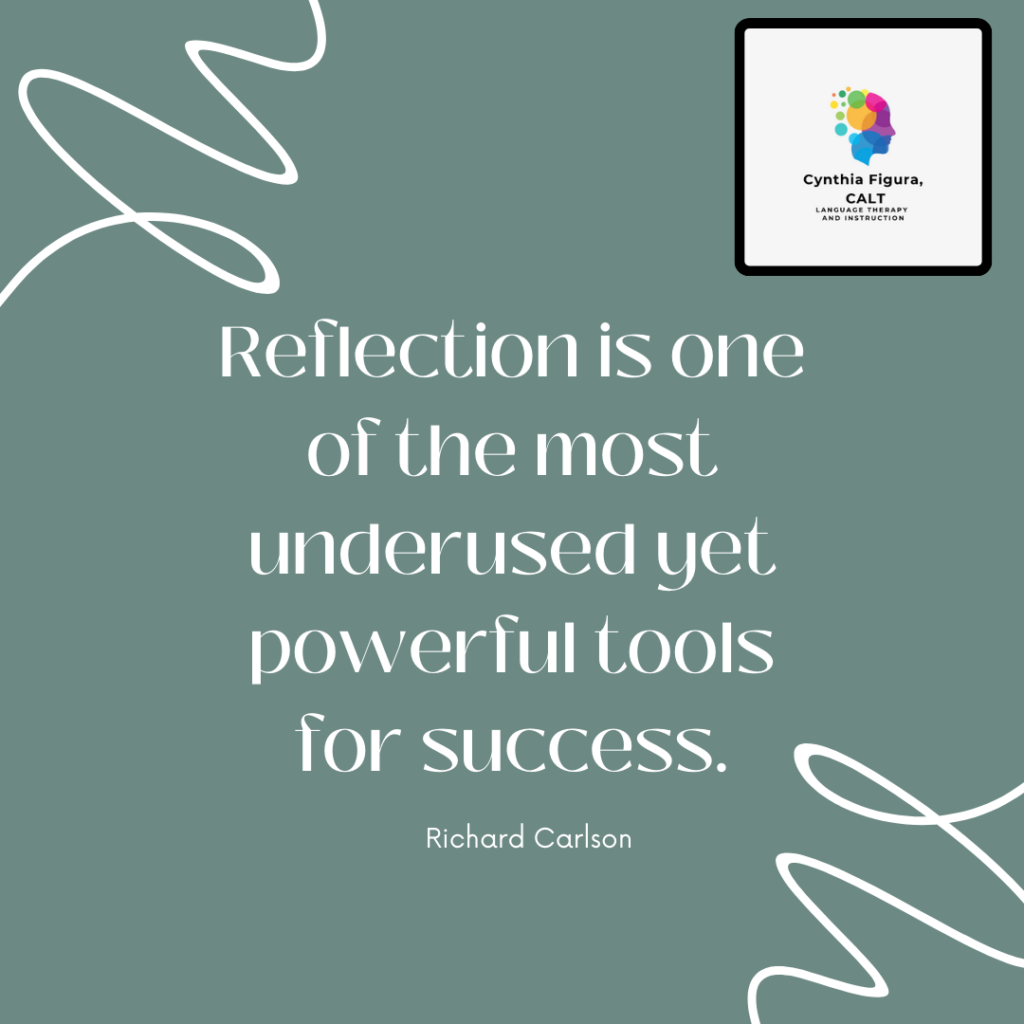
Cynthia Figura, CALT
What is Reflection?
I’m sure most of us are familiar with reflection and its role in our lives. Some of us reflect more than others. True reflecting is taking time to fully evaluate our past actions. By reflecting, we can revisit the past and look at it through different lenses and perspectives. Maybe we got into a fight with our spouse the night before. After things calm down, we can reflect on that fight and look at it from all party’s perspectives. Maybe we had a presentation at work. We can reflect on that presentation, thinking about how we did, how others might have received the presentation, etc.
Why Do We Reflect?
We reflect when we want to examine an event in greater detail. We reflect when something didn’t go the way we expected. We reflect when we simply spend time thinking about our day.
Reflection is NOT the End
The step in reflection that is the most critical, is the after. What will we DO with this information we learned in reflecting? After reflecting on an argument, maybe we realize that the other person was harmed by our words. After reflecting on that presentation, we might find certain improvements that we could make to do a better job next time. After reflecting on our day, we discover that we had some positive takeaways in a rough day. Once we’ve reflected and focused on key aspects of the event, we can set actionable goals and determine our next steps.
Reflection in the Academic Setting
When sitting down with my students to reflect on their past semester, I asked them to think about what they did that made them successful students. Here are some of the responses I received:
“I got good grades.”
“I helped people.”
“I was nice.”
These were not the responses I was looking for, so I asked them, “What is the job of a student? What would a successful student look like, sound like, act like?” Once we were able to establish that the job of a student is to learn, we talked about specific actions we can take to ensure that we learn. Once those actions were identified, we focused on just one of those actions in our goal for the new semester. Students were still inclined to say their goal was “Math” or “to get good grades”. It took specific, direct instruction to get them to the place where they could say, “I will promise myself to do my homework every week.” or “I will read twenty minutes a day at home.” or “I will participate in class discussions.”
Ending Thoughts
In speaking specifically about students with dyslexia, it can be VERY scary to set goals for ourselves. What if we fail? What if it’s too hard? Thoughts will inevitably run through their head, “You can’t do this!” “This is too hard!” “Just give up!” As caregivers and educators, we need to validate these feelings. It’s important to let our children know that yes, it IS scary, but it’s NOT impossible. We need them to know, truly, that failure is welcomed and a chance to grow and better ourselves, that success cannot come without failure.

